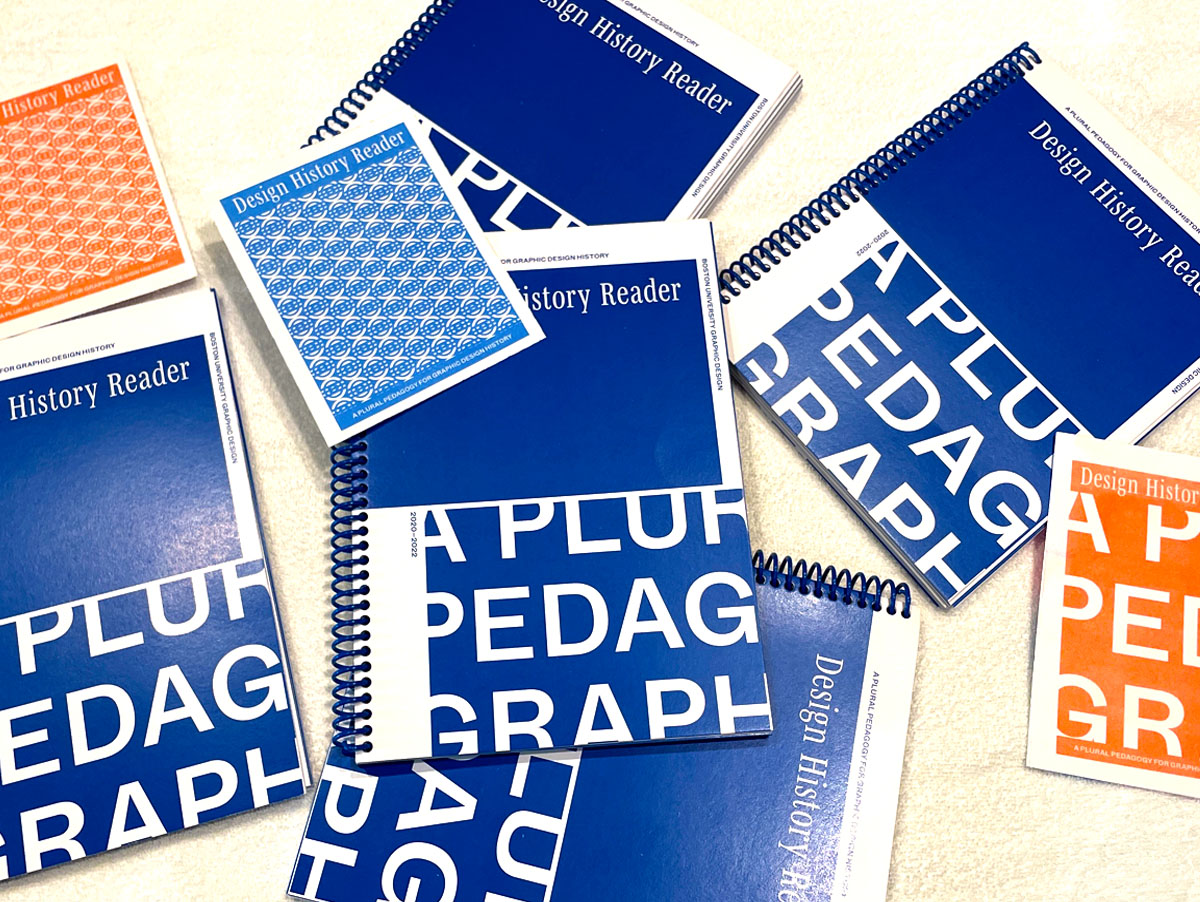Kristen Coogan
Associate Professor
Boston University
Today’s pressing social and political landscape prompts reflection. As people, designers, and educators, how can we actively contribute to the cultivation of more inclusive and balanced cultures? Amidst these circumstances, established historical narratives face renewed scrutiny, challenging their authority and the traditional confines of academic discourse. Nikole Hannah-Jones’ groundbreaking “The 1619 Project” confronts the whiteness of American History. Paulo Freire’s “Pedagogy of the Oppressed” envisions educational spaces where a reimagined teacher-student dynamic invites diverse contributions. This research also recognizes the inherent bias found in any historical discourse built on collective knowledge yet often within a singular perspective. As the demand for a decentralized history grows, the question arises: how do we build a more inclusive design history? At Boston University, Graphic Design History students foster inclusivity through a plural design history pedagogy. Revised slide presentations integrate more women, people of color, and underrepresented stories into the curriculum — enabling students to find more of themselves throughout the narrative. Through interactive lab sessions, students contribute distinct viewpoints informed by supplementary readings, written responses, and collaborative discussions. Culminating in extended essays, students disrupt the Western design canon, spotlighting lesser-known designers and movements. These responses culminate in the “Design History Reader,” where specific texts reveal narratives beyond the established versus marginalized dichotomy. Chapters unveil conceptual ecosystems, emphasizing visual and contextual symmetries bridging dominant and minority narratives. The “Reader” serves as a dynamic starting point, open to interpretation. While not fully representative, it’s an expanding, living archive shaped by collective research.
This design research is presented at Design Incubation Colloquium 10.2: Annual CAA Conference 2024 (Hybrid) on Thursday, February 15, 2024.
